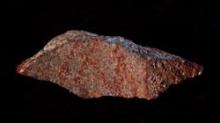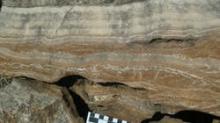News Archive
Displaying 61 - 70 of 129 26 Aug 2023
Dear Members,
Herewith the May newsletter of 2018 from the Northern Branch of the SA Archaeological Society.. please click the link below to open it.
26 Aug 2023
Scientists from the Max Planck Institute for Evolutionary Anthropology have used DNA evidence to prove that Neanderthals occupied the cave site of Trou Al’Wesse in Belgium.
26 Aug 2023
The recently-discovered species Homo naledi may have had a pint-sized brain, but that brain packed a big punch.
26 Aug 2023
Hominins reached Asia at least 2.1 million years ago, researchers assert in an 11 July Nature paper. Stone tools they found in central China represent the earliest known evidence of humans or their ancient relatives living outside Africa. Read the full article here:
26 Aug 2023
A new paper challenges the traditional idea that our species evolved from a single population in one region of Africa.
Read the full article here:
http://www.nhm.ac.uk/discover/news/2018/july/the-way-we-think-about-the-first-modern-humans-in-africa.html
Read the full article here:
http://www.nhm.ac.uk/discover/news/2018/july/the-way-we-think-about-the-first-modern-humans-in-africa.html
26 Aug 2023
Dear Members,
Herewith the September newsletter of 2018 from the Northern Branch of the SA Archaeological Society.. please click the link below to open it.
26 Aug 2023
A new discovery adds to our existing understanding of Homo sapiens in Africa. Read the full article here:
https://theconversation.com/south-africas-blombos-cave-is-home-to-the-earliest-drawing-by-a-human-103017
https://theconversation.com/south-africas-blombos-cave-is-home-to-the-earliest-drawing-by-a-human-103017
26 Aug 2023
In our recent paper in Nature we describe the earliest known instance of an abstract drawing. Here we give a bit of background to what the study entailed. Written by Karen L. van Niekerk and Francesco d'Errico... click the link below to read the full article:
26 Aug 2023
A recent research study has shown that occupation of caves by early hominins in South Africa is restricted to dry phases. The full article can be accessed through Nature via this link, https://www.nature.com/articles/s41586-018-0711-0 or you can read more in the Conversation piece here:

